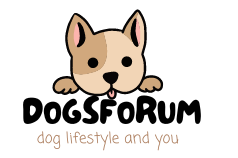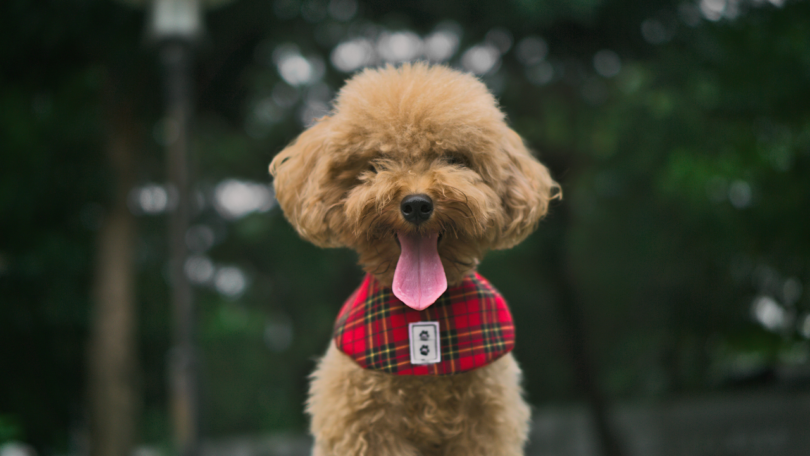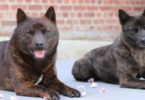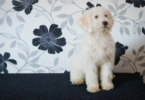Welcoming a Poodle puppy into your home is an exciting adventure filled with fluffy cuddles and playful antics. But beyond the initial excitement lies an important task: shaping your puppy into a well-behaved, confident adult dog. Poodles, known for their intelligence and eagerness to please, are excellent learners. However, it's up to you to guide them towards good habits from the very beginning. Let's dive into the art of cultivating positive behaviors in your Poodle puppy, ensuring a harmonious life together.
Understanding Your Poodle Puppy's Mind
Before we delve into specific habits, it's crucial to understand the unique characteristics of Poodle puppies:
Intellectual Powerhouses
- Poodles are among the most intelligent dog breeds
- They thrive on mental stimulation and problem-solving
- Boredom can lead to mischief, so keep their minds engaged
Sensitive Souls
- Poodles are emotionally attuned to their owners
- They respond best to positive reinforcement
- Harsh corrections can damage their confidence
Energy Bundles
- Puppy Poodles have bursts of high energy
- Regular exercise is crucial for good behavior
- Energy levels vary among toy, miniature, and standard Poodles
Social Butterflies
- Poodles are naturally sociable
- Early socialization is key to a well-rounded adult dog
- They form strong bonds with their families
By keeping these traits in mind, you'll be better equipped to tailor your approach to your Poodle puppy's natural tendencies.
The Foundation: Establishing a Routine
One of the most important steps in cultivating good habits is setting up a consistent routine. Poodles thrive on predictability, which helps them feel secure and understand expectations.
The Power of Scheduled Mealtimes
- Set regular feeding times (3-4 times daily for young puppies)
- This aids in housetraining and prevents resource guarding
- Stick to the schedule, even on weekends
Potty Training Clockwork
- Take your puppy out at consistent times:
- After waking up
- After meals
- After playtime
- Before bedtime
- Use a specific phrase (e.g., “Go potty”) to create association
Sleep Routines
- Establish a consistent bedtime
- Create a cozy sleeping area
- Gradually extend the time between night potty breaks
Exercise and Play Schedules
- Plan daily walks and play sessions
- Incorporate training into playtime
- Adjust intensity based on your Poodle's size and age
Remember, consistency is key. Your Poodle puppy will quickly learn to anticipate and adapt to the routine, making your life easier and their behavior more predictable.
Socialization: Creating a Well-Rounded Poodle
Proper socialization is crucial for raising a confident, friendly Poodle. The critical socialization period is between 3 and 16 weeks of age, but socialization should continue throughout their life.
The Puppy Passport Challenge
- Create a “Puppy Passport” listing various experiences
- Include encounters with different people, animals, and environments
- Aim to “stamp” the passport with positive experiences regularly
Controlled Exposure Technique
- Introduce new experiences gradually
- Start with calm environments and progress to more stimulating ones
- Always associate new experiences with positive rewards
Puppy Classes: More Than Just Training
- Enroll in puppy socialization classes
- These provide structured interactions with other puppies and people
- Learn from a professional while socializing your pup
Home Socialization Station
- Set up a “socialization station” at home
- Include various textures, sounds, and safe objects for exploration
- Regularly rotate items to provide new experiences
Remember, the goal is to create positive associations with a wide range of experiences, setting your Poodle up for a lifetime of confidence and adaptability.
Manners Matter: Teaching Polite Behavior
Poodles are naturally exuberant, which can sometimes translate into jumping, mouthing, or excessive barking. Teaching good manners from the start prevents these behaviors from becoming problematic.
The “Four Paws on the Floor” Rule
- Ignore your puppy when they jump up
- Only give attention when all four paws are on the ground
- Consistency among all family members is crucial
Gentle Mouth Training
- Teach bite inhibition through gentle play
- If your puppy bites too hard, make a high-pitched yelp and stop play
- Redirect to appropriate chew toys
The “Quiet” Command: A Bark's Best Friend
- Identify your puppy's bark triggers
- Teach the “Quiet” command using positive reinforcement
- Reward calm behavior, especially in typically exciting situations
Leash Manners: The Polite Walker
- Start leash training early with short, positive sessions
- Use treats to reward walking beside you
- Gradually increase the duration and difficulty of walks
By focusing on these fundamental manners, you'll shape your Poodle into a polite canine citizen that's a joy to be around.
Mental Stimulation: Keeping That Poodle Brain Busy
Poodles are intellectual powerhouses, and a bored Poodle is often a mischievous Poodle. Providing ample mental stimulation is key to preventing destructive behaviors and nurturing good habits.
Puzzle Toy Rotation System
- Invest in a variety of puzzle toys
- Create a rotation schedule to keep things interesting
- Gradually increase the difficulty as your puppy masters each toy
The “Learn a New Trick” Weekly Challenge
- Teach a new trick each week
- Start with simple commands and progress to more complex tricks
- Document progress to stay motivated
Scent Work Adventures
- Hide treats or toys around the house
- Use the command “Find it!” to encourage searching
- Gradually make the hiding spots more challenging
DIY Obstacle Courses
- Create indoor obstacle courses using household items
- Guide your puppy through the course with treats
- Rearrange regularly to keep it challenging
Remember, a mentally stimulated Poodle is more likely to exhibit good behavior and less likely to find their own (often destructive) forms of entertainment.
Grooming Habits: More Than Just Looking Good
Poodles require regular grooming, and starting good grooming habits early makes life easier for both you and your dog.
The Grooming Game
- Make grooming a positive experience from day one
- Start with short sessions, focusing on praise and treats
- Gradually increase the duration of grooming sessions
Paw Handling Protocol
- Regularly touch and hold your puppy's paws
- This makes nail trimming easier in the future
- Pair paw handling with treats to create positive associations
Tooth Brushing Bonanza
- Introduce tooth brushing as a fun activity
- Start with letting your puppy lick pet toothpaste off your finger
- Gradually introduce the toothbrush, making it a daily habit
Ear Care Routine
- Poodles are prone to ear infections, so regular cleaning is important
- Make ear checks and cleaning a weekly ritual
- Always follow up with praise and treats
By establishing these grooming habits early, you'll have a Poodle who not only looks great but also enjoys the grooming process.
Exercise Habits: Balancing Physical and Mental Needs
While Poodles aren't typically high-energy dogs, regular exercise is crucial for their physical and mental well-being. Establishing good exercise habits prevents obesity and reduces the likelihood of destructive behaviors.
The Daily Walk Adventure
- Start with short walks, gradually increasing duration
- Make walks exciting by varying routes and allowing sniff time
- Use walks as an opportunity for training and socialization
Playtime with Purpose
- Incorporate training into play sessions
- Use toys that encourage problem-solving
- Rotate toys to keep playtime interesting
Swimming: The Poodle's Natural Sport
- If possible, introduce your Poodle to swimming
- Start in shallow water and use positive reinforcement
- Always supervise water activities
Indoor Exercise for Rainy Days
- Create an indoor agility course
- Play hide-and-seek with treats or toys
- Use a treadmill (with proper training) for standard Poodles
Remember to adjust exercise based on your Poodle's size and age. Toy and miniature Poodles require less intense exercise than standard Poodles.
Alone Time: Preventing Separation Anxiety
Poodles are known for forming strong bonds with their families, which can sometimes lead to separation anxiety. Teaching your puppy to be comfortable alone is crucial for their emotional well-being.
The Gradual Departure Method
- Start by leaving your puppy alone for very short periods
- Gradually increase the duration of your absences
- Don't make a big fuss when leaving or returning
The Special “Alone Time” Toy
- Designate certain toys for use only when you're away
- This creates positive associations with your absence
- Rotate these toys to maintain interest
Crate Training: A Safe Haven
- Introduce the crate as a positive, safe space
- Feed meals in the crate to create good associations
- Use the crate for short periods during the day, not just at night
Background Noise Comfort
- Leave gentle music or the TV on when you're out
- This provides comforting background noise
- Gradually accustom your puppy to typical “home alone” sounds
By teaching your Poodle puppy to be comfortable alone, you're preventing future anxiety and ensuring they can relax when you're not around.
Nutrition Habits: Fueling Good Behavior
Proper nutrition plays a crucial role in your Poodle's behavior and overall health. Establishing good eating habits from puppyhood sets the stage for a lifetime of health.
The Measured Meal Approach
- Use a measuring cup to ensure proper portions
- Adjust amounts based on your puppy's growth and activity level
- Avoid free-feeding, which can lead to obesity
Treat Training Tactics
- Use small, low-calorie treats for training
- Ensure treats make up no more than 10% of daily calorie intake
- Consider using part of your puppy's regular meal for training rewards
Hydration Station
- Ensure fresh water is always available
- Clean the water bowl daily
- Consider a pet fountain to encourage drinking
The “No People Food” Rule
- Establish a strict no table scraps policy
- This prevents begging and maintains a balanced diet
- Educate all family members about the importance of this rule
By focusing on proper nutrition and establishing good eating habits, you're contributing to your Poodle's overall health and behavior.
Communication: Understanding Your Poodle
Effective communication is the cornerstone of good habits. Learning to understand your Poodle's body language and teaching them to understand you creates a strong foundation for positive behavior.
The Body Language Decoder
- Learn to read your Poodle's subtle cues
- Understand signs of stress, excitement, and contentment
- Respond appropriately to your puppy's emotional state
Consistent Command Cues
- Choose simple, distinct words for commands
- Use the same words and hand signals consistently
- Ensure all family members use the same cues
The Name Game
- Teach your puppy to respond to their name
- Use their name to get attention before commands
- Always associate their name with positive experiences
Tone of Voice Training
- Use different tones for commands, praise, and corrections
- Keep your voice calm and positive during training
- Avoid yelling, which can frighten or confuse your puppy
By mastering the art of canine communication, you'll build a strong, trusting relationship with your Poodle, making it easier to guide them towards good habits.
Socialization with Other Pets: Harmony at Home
If you have other pets, it's crucial to establish good habits in your Poodle puppy's interactions with them from the start.
The Gradual Introduction Protocol
- Introduce pets slowly and in a controlled environment
- Use baby gates to allow visual contact without physical interaction at first
- Supervise all interactions closely
Positive Association Building
- Create positive experiences when pets are together
- Offer treats and praise for calm behavior around other pets
- Never force interactions; let them progress naturally
Individual Attention Time
- Ensure each pet gets one-on-one time with you
- This prevents jealousy and reinforces individual bonds
- Use this time for training and bonding activities
Respecting Boundaries
- Teach your Poodle puppy to respect other pets' space
- This includes food bowls, beds, and favorite toys
- Intervene calmly if your puppy is being too pushy
By fostering positive relationships between your Poodle and other pets, you're creating a harmonious multi-pet household.











Leave a Comment